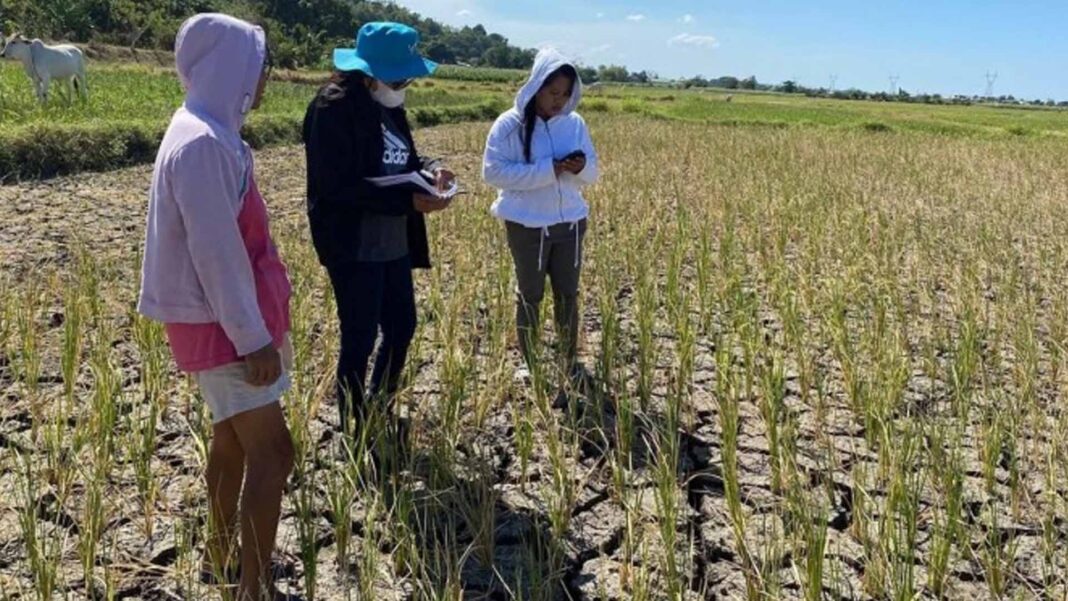The Department of Agriculture in the Cordillera Administrative Region (DA-CAR) has started mobilizing assistance to the rice and corn farmers of Ifugao, with the dry spell affecting the plantation areas.
Lawyer Jennilyn Dawayan, DA-CAR regional director, said on Friday that they had earlier mobilized the El Niño Task Force to conduct site validation and monitoring of the Rapid Damage Analysis and Needs Assessment (RDANA) through the provincial offices of the DA to collect actual data from the ground to assist them in decision-making.
Dawayan reported that the dry spell affected 1,311 Ifugao farmers tending 1,350 hectares of rice and cornfields in CAR. Of this number, 86.4 hectares were reported to be ruined, while 1,253 were partially damaged.
Most of the damage occurred on corn plantations, affecting 1,177 hectares.
DA-CAR has already conducted an inventory of supplies such as seeds from the regular programs of the DA that could be distributed as emergency interventions to the affected farmers.
Since January, the DA-CAR has drummed up monitoring of the farmlands on the effects of El Niño with the Philippine Atmospheric, Geophysical and Astronomical Services Administration (PAGASA) Baguio synoptic station reporting that all Cordillera provinces – Abra, Apayao, Benguet, Ifugao, Kalinga, and Mountain Province – are experiencing the dry spell.
A dry spell occurs when rainfall is below average for five consecutive months, or when the reduction in rainfall is 41 to 80 percent compared to normal monthly rainfall data.
Dawayan said they are also coordinating with the Department of Social Welfare and Development (DSWD) to augment and provide additional interventions for the affected farmers.
State of calamity
Meanwhile, the Ifugao town of Mayoyao, a UNESCO Heritage site for its indigenous practices of producing rice, has declared a state of calamity due to the effect of El Niño.
“It was found out that almost all the barangays are affected by the El Niño phenomenon, thus warrants the declaration of the municipality under the state of calamity,” a resolution passed by the town council on March 11 said.
The prolonged El Niño has caused decreased productivity, crop failures, and diminished yields, leading to food insecurity and economic hardships among farmers, it added. (PNA)





